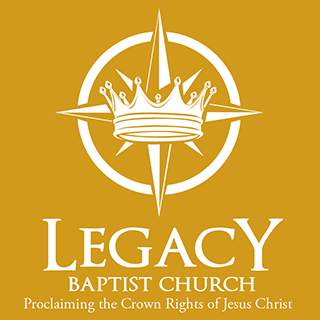One of the most widely misunderstood, and most critically important truths of all history is the crucifixion of Jesus Christ; It, along with the resurrection, is the zenith of history.
Why is the crucifixion important? The crucifixion of Jesus emphasizes man’s debt to God, and God’s delight in Christ. Sin requires judgment. Sacrifice reminds of sin. Jesus’ sacrifice was sufficient to end all sacrifice; Christ is that good. Something that ends all sacrifice for sins would create a ripple effect of such massive proportion, that all of creation past, creation present, and creation future should expect nothing less than a complete transformation.
Do you feel inadequate?
Here’s why putting this truth into practice will change your life – as it should.
Man’s problem is sin, and sin requires judgement; Man cannot pay the price for sin, so one became a man, who could pay the price. His name was Jesus; His nature is God; His being is holy; His sacrifice was worthy; so worthy, there would never need to be another sacrifice. This means, while we were weak, and helpless, He came to accomplish what we couldn’t. How much of our thinking centers on our weakness, our sin, our inadequacies?
It is said that we talk to ourselves at a rate of 1,200 words per minute. Out of 1,200 words per minute, how much time, and how many words are wasted focusing upon ourself instead of Christ’s all-sufficient sacrifice? Do you find your thoughts circling around your fears, your sins, your weaknesses?
Here is the best part
By God’s grace, you can trade your thoughts of personal weakness for thoughts of Jesus’ sufficiency. I might say in my head, “I blew it again.” Although this may be true, I confess that sin, and quickly meditate on something that is not only true, but specific, like, “God is so pleased with the sacrifice of Jesus, that my sin pales in comparison. The blood of Christ is so precious, that my sin, and my inability to present an untainted offering only emphasizes how perfect His offering is.
Be careful…
I am not encouraging anyone to make light of their sin – it is a violation against a holy God, and it demands that justice be served; justice means death of the sinner, or, mercy in Christ. I am, however, encouraging us to turn our thoughts from self and sin, to Christ and sufficiency; for the Christian, justice has been served.
But the truth is, we have to put this into practice.
Hebrews 10 is one place to look to set our thinking upon solid ground, and not mere hype,
“For by one offering He has perfected for all time those who are sanctified.”
Hebrews 10.14
Truly the Christian can say, “Jesus paid it all!” During bouts with depression, we need to follow David’s example in Psalm 42.5, and tell our souls the truth of God’s delight in the offering of Christ on our behalf.
Here’s a piece of brutal truth;
We don’t like admitting that we are weak, and we do like thinking that our offerings are acceptable without any help from Christ. Fallen man wants to see himself as significant instead of fallen. Fallen man must be redeemed by one who pleases God perfectly, namely, Jesus, and His once for all sacrifice. I am thankful God chose me, God loves me, God gave His son for me, but I also realize that my heart is desperately wicked (Jeremiah 17.9), and all my righteousness is like filthy rags (Isaiah 64.6). But in Christ, my offerings are not only accepted, but pleasing.
15 Through Him then, let us continually offer up a sacrifice of praise to God, that is, the fruit of lips that [dgive thanks to His name. 16 And do not neglect doing good and sharing, for with such sacrifices God is pleased.
Hebrews 13.15-16
When we understand this, far from creating sorrow, it sets us free to rejoice in Christ again. We freely acknowledge that we are a people deserving wrath, but getting redemption. We readily agree with the Father that the Son is glorious, victorious, and worthy of praise. This, then, when meditated upon, has the biblical power, coupled with the solidness of truth, and the sanctifying Spirit, to lift us up from being down.

One of Christopher Hitchens’ objections to Christianity was the substitutionary atonement – that an innocent man would die in the place of a guilty man. He simply could not fathom how this concept could be considered justice.
Source: Vanity Fair,
Photograph by Gasper Tringale.
But the Christian understands this concept and sings with the hymn writer,
The sin is on the Savior laid, ‘Tis in His blood sin’s debt is paid;
Stern Justice can demand no more, And Mercy can dispense her store.
“The Perfect Righteousness of God,” by Albert Midlane
When this becomes a part of our daily view of life, we have reason to rejoice. Freedom! We could not buy freedom with an eternity of sacrifice, which our corrupted hands laid upon the altar. We are tainted, tainted by sin, tainted in such a way that nothing we offer can be without corruption.
The world of Hitchenses says, “That is not true. I’m basically good. Surely I am not so bad as to deserve eternal torment!” And I understand that sentiment. If the Bible hadn’t told me otherwise, I would be tempted to agree – tempted and blinded. When we accept the premise that our sin really is not that bad, we set ourselves up for failure, for blindness, for miserable madness indeed. For more: The Sufficiency of Christ’s Sacrifice
